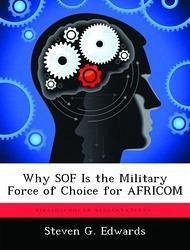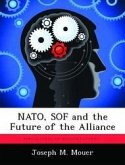Until recently, the African continent was viewed by the US as having limited strategic importance. The events of 9/11, coupled with lingering African issues of HIV/AIDS, global trade, armed conflicts and terror, has pushed the US to begin viewing Africa strategically. As a sign of Africa's new strategic importance on the world stage Africa Command (AFRICOM) was established to better integrate the civil and military actions on the continent. However, very little has been discussed on what military forces will be used in conjunction with the interagency organizations within AFRICOM to support its strategic, operational and tactical goals. The primary missions of the new command has downplayed traditional military roles by concentrating on humanitarian assistance, building partnership capability, civil affairs projects, improving border and maritime security, and professionalization of the militaries on the continent. The purpose of this paper is to demonstrate why special operations forces (SOF) possess the experience and unique capabilities needed to be the primary military force used in support of AFRICOM. This paper will show how SOF possesses the experience to accomplish the wide array of missions required in Africa; experience in working with joint, coalition and interagency partners; culture and language expertise, which allows them to better interact with host nation (HN) personnel; and the ability to keep their footprint small and unobtrusive on the continent.








